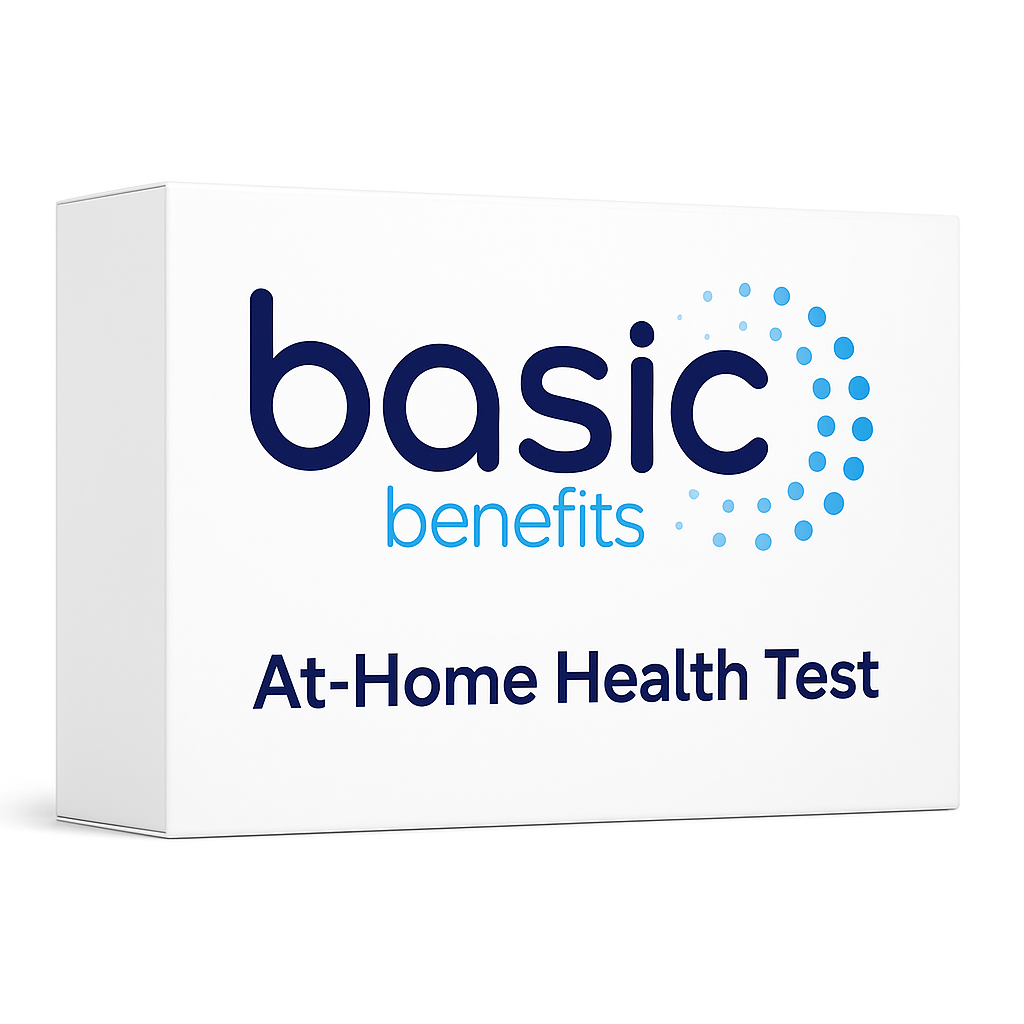Description
Genital Herpes Test: Things to Consider
There are many benefits to using a herpes test kit at home rather than testing for herpes at a doctor’s office. First, the Basic Benefits Genital Herpes test is only $89. This covers the cost of the herpes test kit in addition to the lab work. If you take a herpes test at a doctor’s office, you may end up paying hundreds of dollars to get your results. The exact cost will vary depending on your insurance, your physician, and the type of test.
Using an at-home herpes test kit is also far more convenient than getting tested at a doctor’s office. It only takes a few minutes to collect your sample and ship it off for testing, so you can take the at-home test whenever you have a minute or two to spare. But if you get tested in a doctor’s office, you may need to block off a few hours to make the trip, wait to be seen by a doctor, and complete the physical exam.
If you use insurance to cover the cost of herpes testing at a doctor’s office, your results may be shared on the Medical Information Bureau database, which is accessible to every insurance company. This means insurance companies may use your results to increase your insurance premiums. But Basic Benefits does not share information with this bureau, so your results will remain private if you test for herpes at home. No one has to know but you.
You can also get faster results by taking an at-home herpes test kit instead of getting tested at a doctor’s office or clinic. If you use a Basic Benefits Herpes (HSV-2) antibody, you will receive your results earlier than in a doctor’s office.
These are some of the many reasons why so many people choose to get tested at home rather than in a doctor’s office.
FDA Recommendations About Genital Herpes Tests
On December 27, 2023, the U.S. Food and Drug Administration (FDA) told health care providers and clinical laboratory staff about the potential for false reactive (false positive) results in herpes simplex virus type 2 (HSV-2) serological (antibody) tests for genital herpes. The FDA also made a series of recommendations to address these potential problems.
The following bullets addresses the new FDA recommendations, CDC and professional guidelines, and key information on genital herpes including:
1) Background on genital herpes including genital herpes testing,
2) Guidelines for ordering HSV-2 antibody testing to reduce the risk of false positive and false negative test results, and
3) The use of appropriate confirmatory testing for positive test results.
General Background on Genital Herpes
- Genital Herpes is caused by one of two herpes simplex viruses (HSV). Most cases of genital herpes are caused by infection with HSV type 2 (HSV-2).
- HSV type 1 (HSV-1) is responsible for an increasing number of genital herpes infections in the United States. HSV-1 causes oral as well as genital infections and is mostly associated with oral lesions such as cold sores or fever blisters on the lips of the mouth.
- Sexual transmission of HSV-2 and HSV-1 occurs by genital-to-genital, oral-to-genital, anal-to-genital, and genital-to-anal sex.
- The period between initial HSV infection and having symptoms (for those who do develop symptoms with first infections) is 4 days on average, with a range of 2 to 12 days.
- Asymptomatic first genital herpes infections are common. As a result, most Americans (85-90%) with genital HSV-2 infection are unaware of having genital herpes infection.
- First outbreak genital herpes often includes lesions that start as blisters that become painful ulcers, often accompanied by itching, burning on urination, vaginal or penile discharge, and painful lymph nodes in the groin. First outbreak genital ulcers usually resolve in 2 to 3 weeks.
- Recurrent genital herpes outbreaks have milder symptoms with ulcers often resolving in a week to ten days or less.
- Individuals with genital herpes infections shed herpes virus when they are symptomatic but also when they have no symptoms at all.
- Most HSV-2 transmission occurs during asymptomatic viral shedding episodes when an asymptomatic person with HSV-2 infects a previously uninfected person.
Using Swab Tests to Diagnose Genital Herpes
- For individuals with symptomatic genital herpes (those having an outbreak), a swab test is the most accurate way to identify the herpes virus and determine whether you have type 2 or type 1 genital herpes.
- A nucleic acid amplification test (NAAT), such as a polymerase chain reaction (PCR) test for HSV DNA, is the preferred method of swab testing. NAATs are far more accurate than herpes cultures and can differentiate type 1 and type 2 HSV infections. When having a swab test, a NAAT such as a HSV DNA PCR tests should always be requested from your health care provider rather than a less accurate herpes culture.
Proper Use of Herpes Antibody Tests
- Type-specific antibody tests (TSSTs) are used to identify antibodies to HSV-2 and HSV-1. Their accuracy is less than NAAT swab tests and depending on the clinical scenario, may be much less accurate.
- In cases where individuals are asymptomatic, type-specific herpes antibody tests should only be ordered for the scenarios listed below. Ordering antibody tests for other reasons than those listed could seriously reduce the accuracy of the test and lead you to incorrectly (falsely) conclude that you have genital herpes when you do not.
When Should You Take an At-Home Herpes Test?
HSV type-specific antibody tests such as the Basic Benefits Genital Herpes test can be helpful in determining if you have genital herpes in the following situations:
- Your present or past sex partner was diagnosed with genital herpes
- You were told by a health care provider that your genital outbreak looked like genital herpes, and either the swab test performed was negative for HSV or was not done.
- You have recurrent symptoms of herpes such as genital blisters and ulcers or, have recurrent atypical herpes symptoms such as burning on urination, vaginal discharge, genital rash, and skin fissures where other non-HSV causes of these conditions have been ruled out.
- You are seeking an STI evaluation, are a man who has sex with men or a person with HIV, especially those with 10 or more sex partners.
- Your health care provider recommends that you have HSV antibody testing based on your history and physical exam, and you have not been tested for HSV-2 antibodies. Examples might include a history of unprotected sexual intercourse or that you have had a previous STI.
- Using HSV antibody tests to screen for HSV in the general population is not recommended because of the lack of recognized risk factors for genital herpes in this group.
Understanding HSV-2 Herpes Antibody Test Results
- Basic Benefits offers type-specific IgG herpes antibody testing only for HSV type 2 (HSV-2). Since genital herpes can be caused by both HSV-2 and HSV-1, if you want to order an HSV-1 antibody test, you should see your health care provider to obtain one.
- HSV-2 antibody tests can have false negative results. HSV-2 antibodies take between about 2 weeks to 3-4 months to develop following sexual exposure and persist indefinitely. As a result, it is possible that you receive a false negative HSV-2 antibody test because not enough time had gone by to develop HSV-2 antibodies. If there is concern for recent infection, you should repeat HSV-2 testing in about 3 months.
- HSV-2 antibody tests can have false positive results. For persons with a positive result and a low positive index value, a confirmatory test should be done that uses a different method than used to perform the initial antibody test. A confirmatory test using the Western blot (ONLY available through the University of Washington) is the gold standard in HSV confirmatory testing and should be performed for all positive test results with low index values to eliminate the possibility of false positive test results.
- If you suspect that your HSV-2 antibody test results may be inaccurate (for example, a low positive index value), you should contact your healthcare provider to discuss your results, next steps, options, and available confirmatory testing. Basic Benefits does not offer Western blot confirmatory testing.
Who Should Use a Herpes Test Kit?
Basic Benefits’s herpes (HSV-2) antibody test specifically screens for genital herpes HSV-2 antibodies. This test kit is a popular option for those who think or know that they have been in contact with this infection.
How to use this test
- Order a home testing kit online. The herpes test kit is shipped for free and with discreet packaging so no one will know what is being delivered.
- Collect a sample using the easy-to-follow instructions. Everything you need to collect your sample will be included in the testing kit.
- Use the prepaid envelope in your kit to send the sample off for testing. (More free shipping!)
- Wait for your results. They’ll post to your secure account as soon as ready.
- Schedule a free phone consultation with a physician to discuss your results.
Testing for herpes has never been more convenient. You won’t need to schedule an appointment with your doctor or visit a lab to test for herpes. The entire test can be completed from the comfort of your own home!



Reviews
There are no reviews yet.